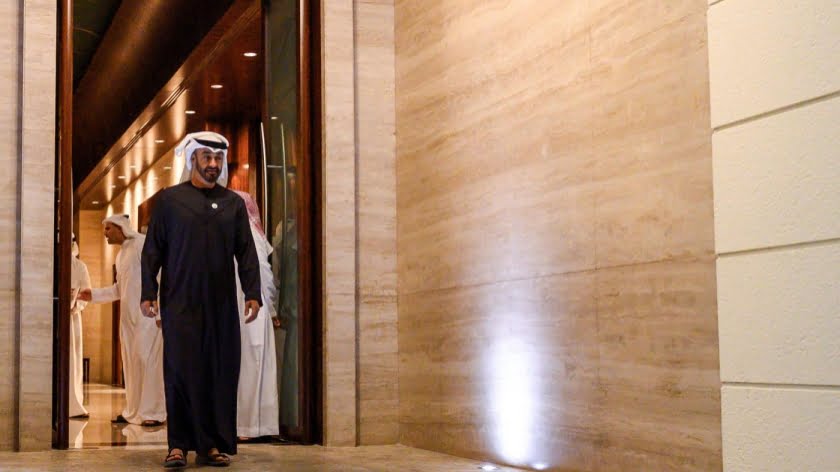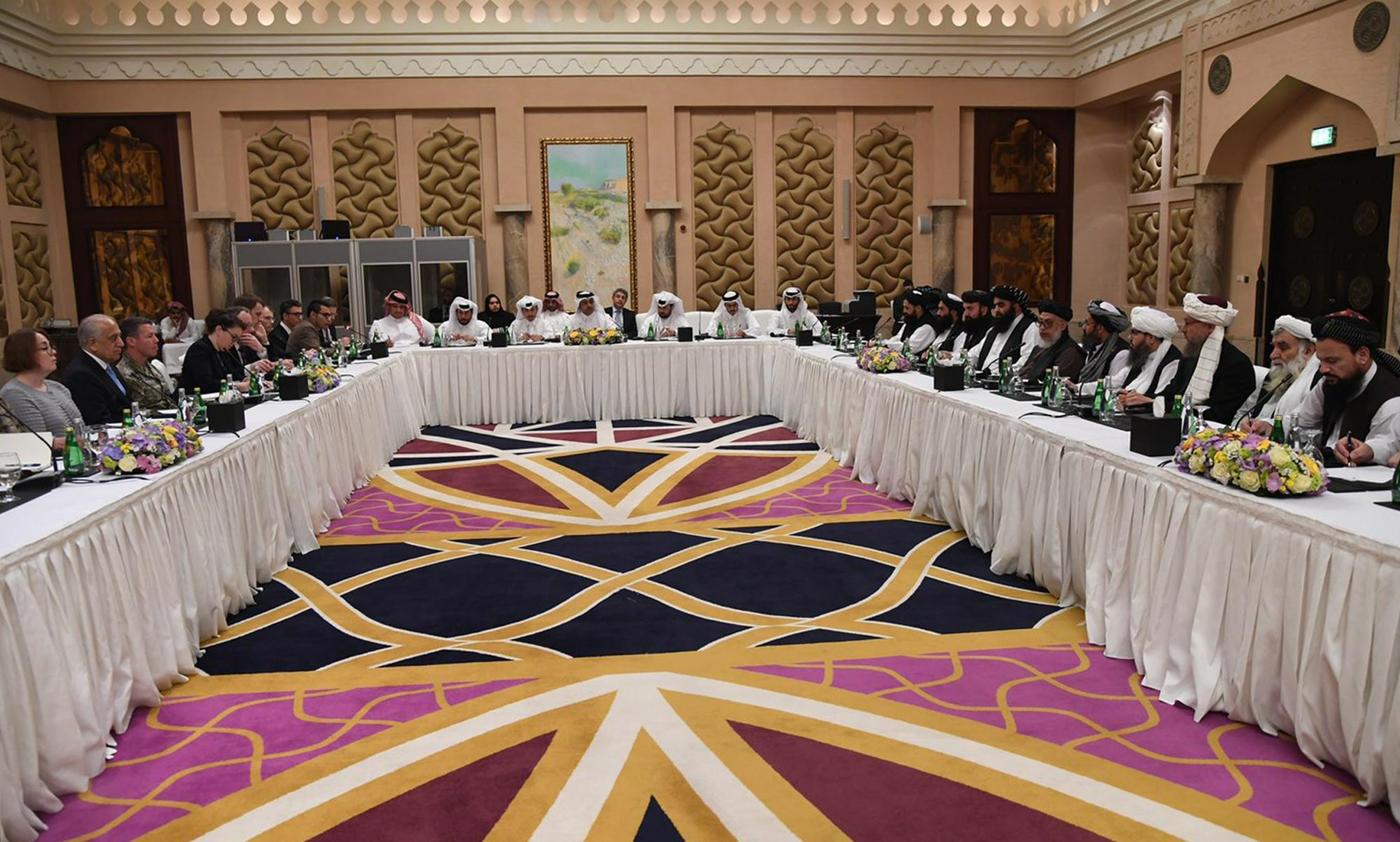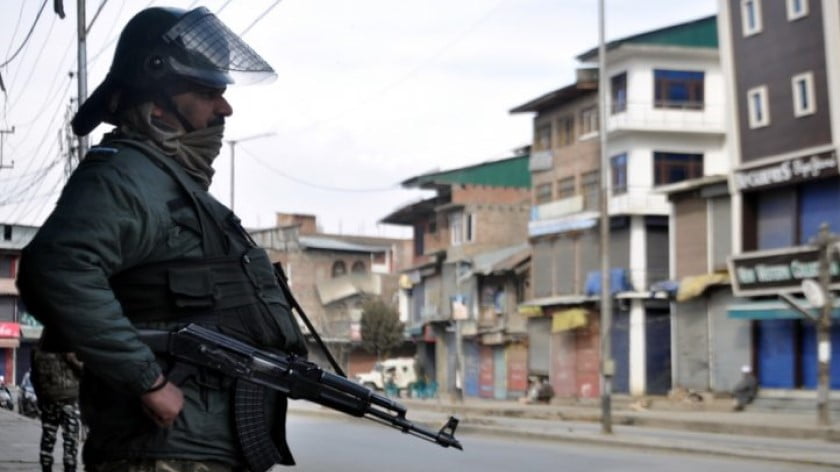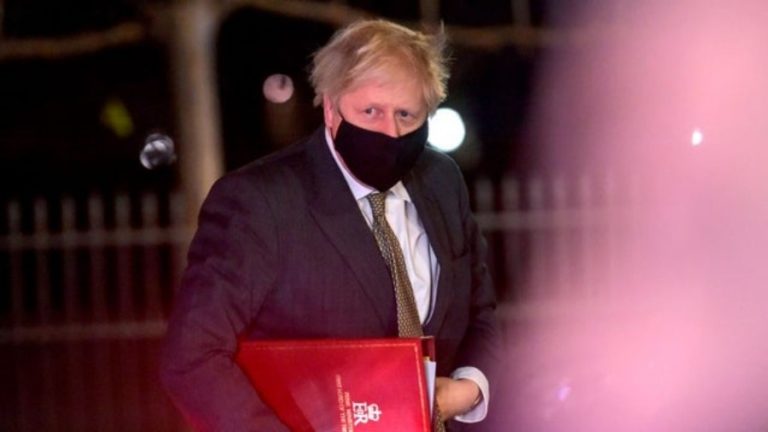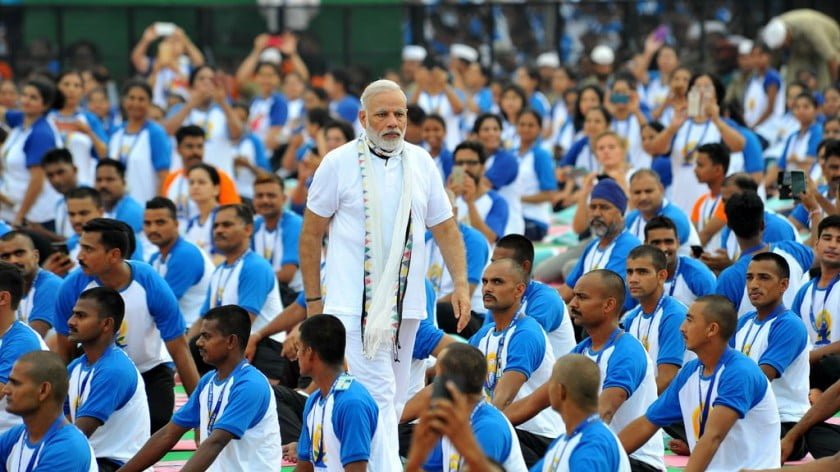UAE’s bin Zayed ‘Proposed Killing Taliban Leaders’
Mohammed bin Zayed, the crown prince of Abu Dhabi, offered to set up a covert assassination programme targeting senior Taliban leaders during a meeting with US Secretary of State Mike Pompeo earlier this year, Middle East Eye has learnt.
Bin Zayed made the offer during Pompeo’s visit to the United Arab Emirates on 12 January amid disagreements between the pair over the progress of peace talks between US and Taliban negotiators.
According to a source with detailed knowledge of the meeting, bin Zayed told Pompeo that Washington risked allowing Afghanistan to fall back into the hands of the “backward, bearded bad guys” and proposed hiring mercenaries to kill Taliban leaders to weaken the group’s negotiating position.
Pompeo was visibly taken aback by the offer, but said nothing, the source said.
The United Arab Emirates has previously supported US efforts to broker a peace deal with the Taliban, and hosted a first round of face-to-face negotiations between the two sides on 20 December last year in Abu Dhabi.
But bin Zayed is understood to have been frustrated that subsequent rounds of talks were moved to Doha, the capital of Qatar, at the Taliban’s insistence.
According to MEE’s source, bin Zayed also warned Pompeo that withdrawing American forces from Afghanistan risked turning back the clock to 2001, prior to the US-led invasion that overthrew the Taliban government in Kabul.
The US hopes that a negotiated deal with the Taliban, which continues to battle Afghan government and international forces, could allow it to start withdrawing some of its 14,000 troops still in the country before the end of 2019.
Bin Zayed suggested instead organising and funding what he described as a “Blackwater-style” operation to “wage an assassination campaign against the first-line leadership of the Taliban” in order to prevent it from achieving its chief political demands, the source said.
Mercenary army
Blackwater was the private security firm founded by Erik Prince which was hired by the CIA in 2004 to run covert operations involving the locating and killing of al-Qaeda operatives.
US officials acknowledged the existence of the programme in 2009 but said that no operations were ever conducted.
Blackwater gained notoriety over its activities in Iraq where several of its contractors opened fire on unarmed civilians in Baghdad in 2007, killing 14 people and injuring 17 others.
Prince later settled in Abu Dhabi and was subsequently hired by bin Zayed to build a mercenary army in the UAE to confront potential worker or pro-democracy uprisings.
An 800-member battalion of foreign troops was brought into the UAE, the New York Times reported in 2011.
The UAE also sent foreign mercenaries to fight as part of the Saudi-led coalition in Yemen, where it ran an assassination programme targeting leaders of Al-Islah, the local branch of the Muslim Brotherhood.
In October last year, Abraham Golan, a Hungarian-Israeli security contractor, revealed details about the assassination programme to BuzzFeed News.
The UAE hired former special forces soldiers to carry out the missions, Buzzfeed reported.
“I was running it. We did it. It was sanctioned by the UAE within the coalition,” Golan said.
Al-Islah said in August last year that nine of its leaders had been murdered since 2015. They are among at least 27 clerics killed, often in drive-by shootings, in the southern city of Aden and surrounding areas by unidentified militias in the same period.
A member of the group told MEE in October that he believed bin Zayed was behind the killings.
‘Killing and talking’
“I believe that Mohammed bin Zayed convinced [Saudi Crown Prince] Mohammed bin Salman to fight the Muslim Brotherhood in Yemen,” said Al-Islah’s Mohammed Abdulwadood. “The latter approves all UAE steps in Yemen.”
Bin Zayed has nonetheless maintained close contacts with Al-Islah leaders, who he hosted for talks in Abu Dhabi in November.
MEE’s source described bin Zayed’s proposal to target Taliban leaders even as peace talks were ongoing as a replica of the one deployed against Al-Islah leaders in Yemen.
‘Any threat… will eliminate the present chance for peace and will create irreparable mistrust’
– Taliban spokesperson
“It’s the same tactic: killing and talking,” he said.
Taliban officials are understood to be aware of bin Zayed’s proposal to assassinate the group’s top leadership.
But a Taliban spokesperson in Doha told MEE that he could not comment on the authenticity of the claim.
“Any threat and blackmailing whatsoever and from anywhere will eliminate the present chance for peace and will create irreparable mistrust,” he said.
The government of the UAE has been publicly supportive of US negotiations with the Taliban, with the official WAM news agency reporting after December’s talks that further rounds would also take place in Abu Dhabi “to complete the Afghanistan reconciliation process”.
But the next two rounds of negotiations – a six-day meeting in January described by Pompeo on Twitter as “encouraging”, and further talks over 16 days in February and March – were moved to Doha, where the Taliban has maintained a political office since 2013.
Pompeo is said to have pushed back despite bin Zayed’s displeasure, telling him that the move had happened at the request of the Taliban, and that the US side was less interested in the venue than in achieving a ceasefire.
The US negotiating team is headed by Zalmay Khalilzad, who wrote on Twitter following the end of the last round of talks on 12 March that “the conditions for peace have improved”.
“It’s clear all sides want to end the war. Despite ups and downs, we kept things on track and made real strides,” Khalilzad wrote.
‘Chaos follows’
Bin Zayed was also upset at US President Donald Trump’s announcement in December that he would pull all 2,000 US troops out of Syria, MEE’s source said.
At the time of his meeting with the crown prince, Pompeo and John Bolton, Trump’s national security adviser, were taking part in a nine-nation tour of the region to reassure allies jittery at the prospect of a sudden US withdrawal from Syria.
Two days earlier, in a keynote speech in Cairo, Pompeo had vowed to “expel every last Iranian boot” from Syria.
But his speech, framed as an assault on Barack Obama’s Middle East policies, was also read as an implicit row back of Trump’s announcement in December that all US troops would leave Syria in 30 days. The announcement prompted a clash with Turkey and the resignation of Jim Mattis, Trump’s defence secretary.
Pompeo declared in Cairo that “when America retreats, chaos follows.”
Bin Zayed reinforced the same message to Pompeo. He told the US secretary of state: “You are leaving Syria to be under Iranian and Turkish influence and that will bring everyone back. They will act against your acts and our interests.”
Bin Zayed held out a carrot. He said that if the US changed its mind, the United Arab Emirates would be prepared to fund the cost of keeping US troops in Syria from its own budget.
The State Department declined to comment when contacted by MEE. MEE also asked the UAE government to comment but had not received a response at the time of publication.
By David Hearst
Source: Middle East Eye

